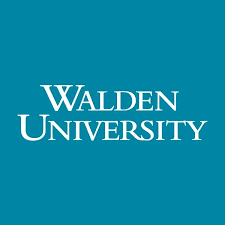
Abstract
With this first issue of Higher Learning Research Communications (HLRC), Universidad Andrés Bello in Chile, Universidad Europea de Madrid in Spain, Istanbul Bilgi University in Turkey and Walden University in the United States, in consonance with their mission, are sponsoring collaboratively a journal dedicated to higher learning in the international arena. The knowledge driven society that so clearly marks our era, where real time communications make the phrase “global world” a true feature of our lives, has changed the means through which we learn. The rapid expansion of multicultural environments and the influence of the fast changing techno-scientific advances, social networking, information power engines and individual multitask capabilities compels us to educate more people at a superior level. However, although teaching will always be a relevant means in education, the paths to learning have evolved notoriously. The binomial teaching and learning demand increased attention to understand the powerful variety of ways to get information, expertise in understanding that the decodification of the learned knowledge involves comprehension of the needed skills, and assurance that the assessment warrants certification of the expected outcomes. HLRC deals with these challenges and has appropriated them to define its scope.Under the auspices of these four universities we are proud to pioneer a collaborative and inclusive endeavor that goes well beyond the institutions and expands across continents. The Senior Consulting Editors and members of the Editorial Advisory Board have been carefully selected for their dedication and experience in the areas of education and higher learning. HLRC also benefits from the Laureate International Universities’ network of over 55 institutions in 28 countries, leveraging the internationality and expertise of academic leaders across the globe. We are very proud and thankful for their participation and commitment to this enterprise. As a scientific, peer-reviewed journal, HLRC aims to advance knowledge on all aspects concerning teaching and learning in higher education by fostering collaboration between innovative minds. We believe this inaugural issue presents examples of good practice in international higher learning and offers forward thinking in educational leadership for a global world. As an introduction, on the invited essay, Sir Drummond Bone provides an overview of internationalization since 2008 to the present. Other articles included on this issue illustrate our mission to provide a better understanding of institutional policy and actual practice across education disciplines. Velasco Quintana and Benito Capa (Universidad Europea de Madrid, Spain) explore the role of peer-mentorship in the development of competences for both mentors and mentees, presented in the context of Mathematics. Morales (Dublin Institute of Technology, Ireland) introduces a case study of corporate finance students to investigate the use of clickers as a tool to support, encourage and motivate critical thinking in higher education students. Bemposta Rosende, García García and Escribano Otero (Universidad Europea de Madrid, Spain) examine blended-learning to identify how the new teaching environments influence teaching activities and learning processes. Goh (Blue Mountains International Hotel Management School, Australia) looks at fieldtrips as a means to enhance students’ educational experience in Tourism and Hospitality education. And finally, Stocklin (Les Roches Jin Jian International Hotel Management College, China) investigates the relationship between integration and capacity building so educational leaders can develop the performance of individual faculty members and establish synergies to achieve high performance. Welcome to the first issue of HLRC! This journal fulfills a vision of collaboration we hope will prompt inclusive discussions while exploring the global nature of higher learning leadership and challenges.
Recommended Citation
Editors, T.
(2011).
Editorial.
Higher Learning Research Communications, 1 (1).
Retrieved from https://scholarworks.waldenu.edu/hlrc/vol1/iss1/7






